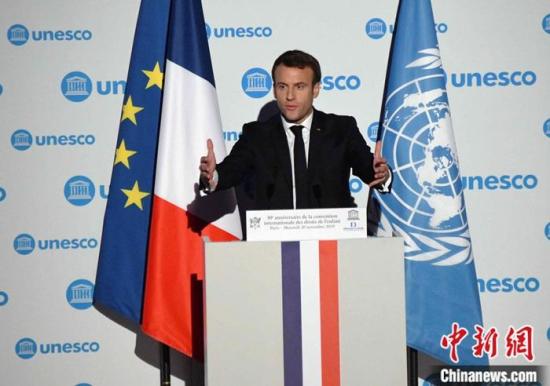Chinanews.com, February 24th. According to the "Europe Times" report on the 23rd, the EU special summit was held in Brussels from 20 to 21st. This is the first EU summit to be held after Brexit, mainly to discuss the long-term budget from 2021 to 2027. But the parties failed to reach consensus.
Data sheet: European Commission President Von Delane.
According to reports, the European Council President Michel convened the summit, but the EU countries have far-reaching positions on many issues. Although many bilateral and multilateral talks were held simultaneously during the summit in an attempt to reach a compromise, they still failed. end.
Prior to the summit, Hungarian Prime Minister Olban warned that it would not be possible to reach an agreement with only one summit unless there was a miracle.
Michel said that negotiations around the budget are always difficult, especially after Brexit, which left a huge funding gap, and all parties must work hard to bridge differences and coordinate interest concerns. However, Michelle said that he does not regret the convening of the summit, at least this makes the positions of all parties more clearly expressed.
Michelle had previously proposed a set of recommendations as the basis for negotiations at the summit in order to understand the requirements and red lines of all parties. But after the 27 heads of state officially met, the proposal was rejected in less than half an hour, and they agreed that more time was needed to reach an agreement.
German Chancellor Angela Merkel acknowledged that the parties were too divided to reach an agreement and could only continue discussions in the future.
And European Commission President Von Delane warned that the time was urgent: "If there is no agreement this year, there may be no budget for the next 7 years and no funds to support the Erasmus plan, scientific research activities, regional development and border control."
Fight against each other between different factions
AFP quoted a mediator as saying, "Our current situation is that different camps are fighting each other."
Data Map: French President Macron. Photo by Li Yang, China News Agency
Observers said that the summit's negotiations were dominated by some "restricted food" countries, which refers to the relevant countries' demand for austerity budgets to be limited to 1% of their gross national product in order to reduce the fiscal allocation to the EU.
Agence France-Presse names the four countries that are "cost-effective"-the Netherlands, Austria, Denmark and Sweden.
The most representative of them is the Prime Minister of the Netherlands, Rutte. After Brexit, the Netherlands has often been criticized for taking over Britain ’s “difficult” role within the European Union. Rutt firmly denies this, but also requires that after Brexit, the new budget should take this change into account. factor.
The other camp is "Friends of European Ambitions", Spain is one of the main members of this camp, this camp has 16 countries, and its population is far more than the countries that require "saving food and food", they demand to maintain and strengthen "cohesion" The role of "policy" is development assistance to less developed regions within the EU.
As the core countries of the European Union, France and Germany do not belong to either of the two groups. However, the two countries also have their own policy priorities. Germany was not satisfied with Michel's proposal before, and Merkel complained that this solution did not balance the various "net contributors" (that is, the fiscal contribution to the EU exceeded that obtained from the EU). Financial returns).
France is more concerned about maintaining the EU's "common agricultural policy." Macron had previously stated at the French Agricultural Exhibition that "the common agricultural policy should not pay for Brexit."
Brexit leaves 'financial hole'
It is reported that Brexit leaves a gap of 60 billion to 75 billion euros for the European Union. Against this background, net-investing nations want to reduce spending, while lagging nations want net-investing nations to assume more obligations to fill the gap left by Britain.
At the same time, the European Union has formulated ambitious plans for challenges such as the immigration crisis, climate change, and digital transformation. It requires a large amount of investment, and countries are seriously divided on how to ensure funding sources.
Michel previously suggested that the new budget should account for 1.074% of the EU's GDP, which is 1.0948 billion euros, and experts from the European Commission subsequently reduced it to 1.07%.
In addition, the fiscal sharing deduction policy currently enjoyed by five European countries (Germany, Denmark, Netherlands, Austria, and Sweden) also faces challenges. The related deduction is about 5 billion euros per year, and other countries have demanded that this practice be stopped.

